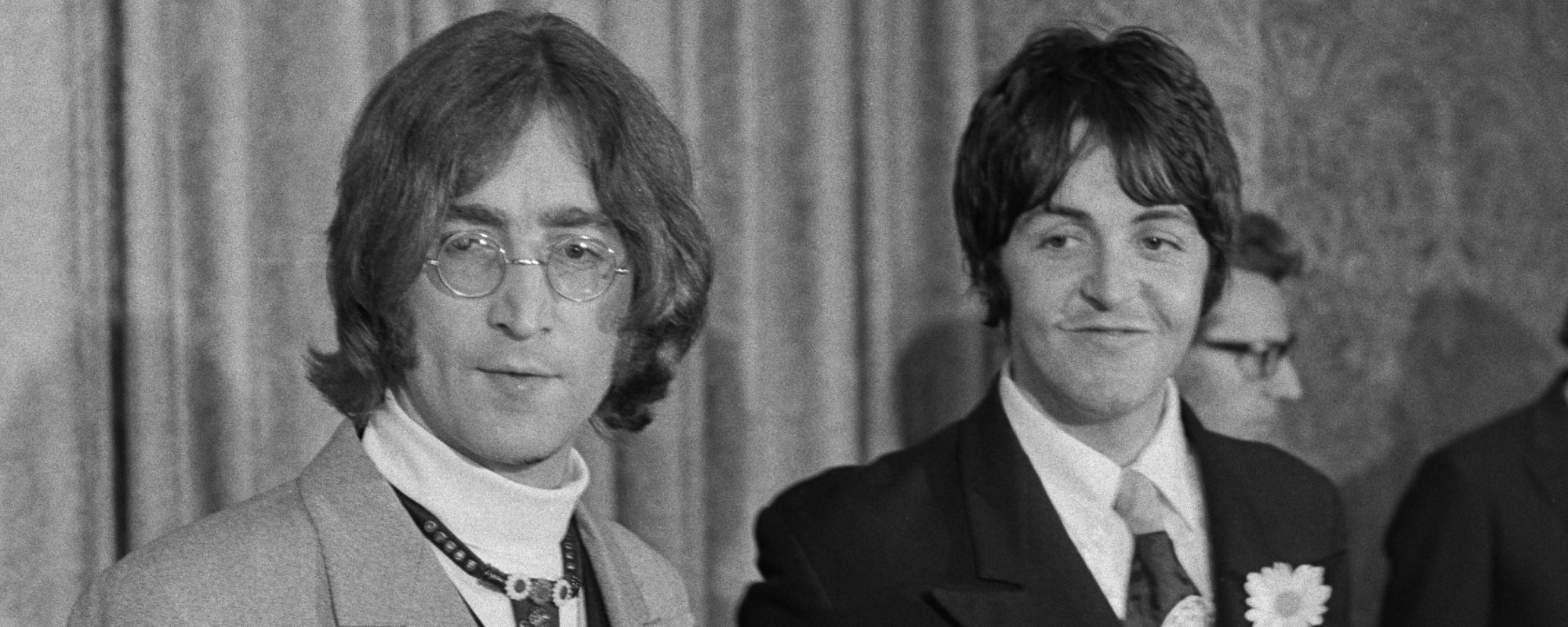The cowboy is practically synonymous with country music. He signifies freedom to make a living off the land and to roam the country unrestricted. He represents pride in working-class roots and self-sufficiency. And in a broader sense, he represents the fundamental (if problematic) American values of westward expansion and conquering the unknown. But why does he represent country music?
Videos by American Songwriter
While real cowboys and their culture have their place in our history, it was the singing cowboys of 1930s and ‘40s Hollywood films that inspired the next generation of what came to be known as country musicians, many of whom got their start on a Gene Autry-branded guitar and took to wearing flashy western wear to attract attention at public appearances.
But somewhere along the way, Country and Western music lost the “Western” appellation. The country in country music is Appalachian folk music—A.P. Carter and Roy Acuff were not cowboys. Whereas Western music is cowboy music from the west, whose DNA contains Mexican corrido and German Polka in equal measure to Anglo folk. Country and Western music—that makes all the cowboy hats make a little more sense.
I guess what I’m saying is, even the great Hank Williams’ cowboy hat was an affectation. But in some parts out west, you still have to earn the right to wear a wide-brimmed Stetson. And here are five country and western singers who did, by roping and riding in real life.
Cody Johnson
Texan Cody Johnson got his start in music early in life, learning from his father and playing in church from the age of 12. But at the same time, he was riding bulls professionally in local rodeos.
In Johnson’s collaboration with Reba McEntire, “Dear Rodeo”, the singer adopts a confessional pose, penning a love letter to the sport he left behind to pursue his music career:
‘Tween the almost-had-’ems and broken bones
The dream of a buckle I’ll never put on
I’m jaded
Whoa, I hate it
But somehow the highs outweigh the lows
And I’d do it all again, even though we both know
I’d still have to let you go.
Chris LeDoux
Gone 20 years this year, Chris LeDoux was the real deal—a rodeo cowboy who began writing songs to describe his working cowboy lifestyle.
He sold tapes out of his truck at rodeos, reaching a stunning level of acclaim with very little marketing—or even label representation—thanks to his cowboy authenticity. And he was equally, if not more, successful at rodeo as he was at music: he even won the World Bareback Riding Championship in 1976 in Oklahoma City.
In his song “This Cowboy’s Hat,” LeDoux pours his heart and soul into the pride he feels in his cowboy roots:
You’ll ride a black tornado ‘cross the western sky
You’ll rope an ol’ blue northern, and milk it ’til it’s dry
Bulldog the Mississippi and pin its ears down flat
Long before you take this cowboy’s hat.
Colter Wall
It’s unclear when exactly Canadian crooner Colter Wall got his start cattle ranching, as he is notoriously introverted and keeps to himself, even at the expense of some good lore. But his few and far-between Instagram posts speak for themselves, showing the Saskatchewan native riding, roping, and branding calves at least as often as they show him picking a guitar.
While his early output on such albums as Imaginary Appalachia focused more on small-town life, existential despair, and torrid love affairs, Wall’s music took a turn with his album Songs of the Plains, and it’s pretty much been all “Punchy Songs” since then, like “Houlihans at the Holiday Inn”:
If I’m paid well, a tale I’ll tell and sing
And I seldom pay a cent for my drinks
Folks in here tonight, they think I’m a king
I’d trade it all for a double-rigged saddle and a good pair of chinks.
Ryan Bingham
Yellowstone star and country singer/songwriter Ryan Bingham was an apt casting choice for the role of Walker, the itinerant singing cowboy, due to parallels with the New Mexican troubadour’s lived experience.
Coming up in the American Southwest, Bingham took to bullriding in his teens before he even picked up his first guitar. Bingham spent his formative years traveling the world in both capacities as a rodeo rider and song slinger.
2024 marked the release of Bingham’s “A Song For the Stone,” which was written for and performed on an episode of Yellowstone:
Up before the sun
Before the wind cuts cold
Cowboys packing heat
Pushing cattle up and down the Yellowstone.
Luke Bell
Luke Bell never hit the big time as a country singer in his short life, but he sure had the talent. Cut down in his prime when he lost the fight against mental health struggles and addiction, Bell was a local hero in the Nashville community with serious star power and a timeless voice that floored everyone who heard it.
But before moving to Nashville to focus on his music, Bell spent time working on ranches in his native Wyoming. Growing up in Cody, he was steeped in traditional cowboy music and culture, influences that would later be reflected in songwriting, as we see here in “The Bullfighter”:
I get loud when I get mad
And I get tough when I get sad
I’ll tangle with the horns like a Spaniard in the pit
I’m here to play for blood, boys, and I’ll be here ’til the end
For I am the bravest bullfighter that ever dared the pen.
Photo by John Medina/Getty Images











Leave a Reply
Only members can comment. Become a member. Already a member? Log in.